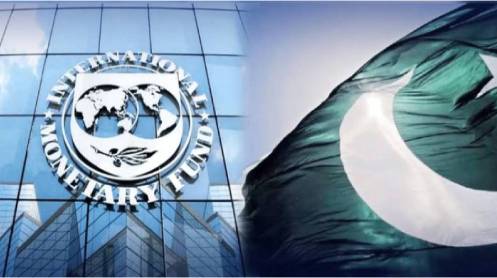ISLAMABAD: The International Monetary Fund (IMF) has urged Pakistan to base the next increase in power tariffs on an anticipated further devaluation of the rupee rather than assuming the current stable value of the local currency. This recommendation could exacerbate the already significant burden on electricity consumers, as the government had previously planned a rate hike of up to Rs7 per unit based on a stable exchange rate, according to sources in the Ministry of Energy.
During a recent meeting with the National Electric Power Regulatory Authority (NEPRA), the IMF raised concerns about the exchange rate devaluation and questioned the incorrect electricity consumption assumptions used for the current fiscal year’s annual power tariff adjustments. The higher consumption estimates, which proved inaccurate, resulted in substantial increases in electricity bills due to monthly and quarterly tariff adjustments.
Pakistani authorities informed the IMF that upcoming electricity price hikes would overburden consumers due to multiple simultaneous increases on account of monthly fuel adjustments, quarterly adjustments, and a significant annual base tariff increase. NEPRA has scheduled a hearing on Thursday to determine the annual base tariff adjustment.
The IMF team, in town until May 23rd, is assessing the government’s readiness to undertake difficult measures and approve the next budget before presenting it to the federal cabinet and Parliament. Domestic consumers are already paying up to Rs62 per unit for electricity, driving suppressed demand and a shift to alternative energy sources.
The Ministry of Energy faced tough questions from the IMF over its incorrect and unrealistic electricity consumption estimates. NEPRA, lacking in-house capacity for accurate projections, had relied on the Ministry of Energy’s data, which assumed a 7% increase in electricity consumption for this fiscal year. In reality, consumption dropped compared to the previous year, leading to lesser annual base tariff increases last July but causing heavy price hikes due to monthly and quarterly adjustments.
The IMF advised Pakistan to consider the average depreciation of the rupee when calculating next year’s annual base tariffs, assuming the rupee will devalue to Rs329 per dollar, an 18% drop by June next year. This approach contrasts with the stable value initially used by Pakistani authorities.
The IMF also scrutinized delays in passing on the impact of electricity price increases due to quarterly adjustments. Due to incorrect estimates and systemic inefficiencies, the circular debt is projected to reach at least Rs2.450 trillion, against a target of Rs2.310 trillion. Pakistani authorities admitted to the IMF that they would miss the circular debt reduction target by Rs138 billion but pledged efforts to recover Rs20 billion of the quarterly adjustment within this fiscal year to keep the circular debt around Rs2.430 trillion.
NEPRA is expected to provide realistic numbers for electricity demand and exchange rates to the IMF, which will be used for calculating future electricity price increases. Energy and taxation have emerged as contentious topics during the ongoing IMF negotiations, indicating that both the IMF and the government may repeat past mistakes by further increasing taxes and electricity prices.







